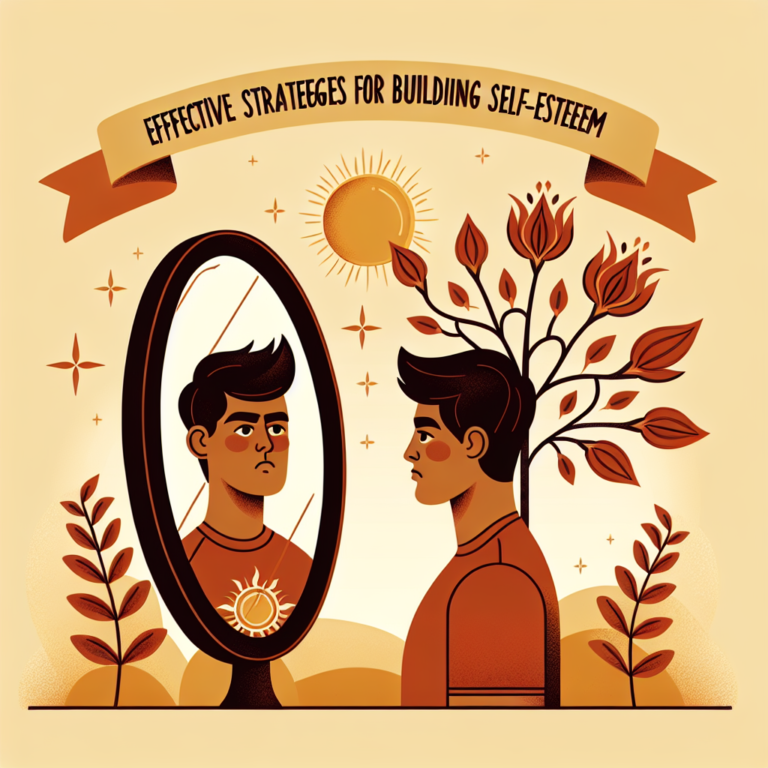
The Road to Maturity: An Essential Psychological Guide to Human Development Stages
Introduction
Why Maturity Matters
In the grand journey of life, the road to maturity is perhaps the most significant phase we traverse. Understanding the human development stages is not just an academic pursuit; it’s an essential roadmap that helps us navigate the complexities of our lives. This psychological guide serves as a beacon, illuminating the various stages of human growth from infancy to adulthood, and provides invaluable insights on how to thrive at each juncture. But what does it truly mean to mature? This article delves into the psychological underpinnings of maturation, exploring its intricacies, implications, and the real-world applications that can foster deeper understanding and personal growth.
As we embark on this exploration of "The Road to Maturity: A Psychological Guide to Human Development Stages," prepare to engage with complex ideas articulated in an accessible manner, and maybe even uncover something transformative about your personal journey.
Stages of Human Development: An Overview
Before we delve deeper, let’s summarize the widely recognized stages of human development. While several models exist, Erik Erikson’s psychosocial development theory is one of the most prominent, outlining eight key stages:
| Stage | Age Range | Key Conflict | Positive Outcome |
|---|---|---|---|
| 1. Trust vs. Mistrust | Infancy (0-1 year) | Trust and security versus fear | Sense of security |
| 2. Autonomy vs. Shame | Early Childhood (1-3 years) | Independence versus doubt | Confidence in autonomy |
| 3. Initiative vs. Guilt | Preschool (3-6 years) | Initiative versus guilt | Initiative and leadership |
| 4. Industry vs. Inferiority | School Age (6-12 years) | Competence versus failure | Sense of accomplishment |
| 5. Identity vs. Role Confusion | Adolescence (12-18 years) | Identity versus confusion | Strong sense of self |
| 6. Intimacy vs. Isolation | Young Adulthood (18-40 years) | Relationships versus isolation | Healthy relationships |
| 7. Generativity vs. Stagnation | Middle Adulthood (40-65 years) | Productivity versus stagnation | Sense of contribution |
| 8. Integrity vs. Despair | Late Adulthood (65+ years) | Reflection versus regret | Wisdom and fulfillment |
Understanding these stages provides a solid foundation as we explore the nuances of human maturity.
Infancy: The Foundation of Trust
Building Trust
The first stage, Trust vs. Mistrust, is critical in laying the groundwork for a healthy psychological environment. Infants rely heavily on caregivers for their survival and emotional needs. If caregiving is consistent and reliable, infants develop a sense of trust, which is essential for future relational dynamics.
Case Study: Maria’s Early Years
Consider the case of Maria, who thrived in an environment where her needs were met consistently. This set the stage for her to become a confident adult, unafraid to reach out and form connections. Contrastingly, a peer who experienced erratic caregiving developed mistrust that lingered into adulthood, manifesting in difficulties in relationships and a general skepticism about the world.
Analysis
Maria’s case illustrates the vital need for stable early relationships. Those without this foundation may carry unresolved issues into later stages, complicating the path to maturity.
Early Childhood: Learning Autonomy
Developing Independence
The second stage highlights the conflict of autonomy versus shame. As toddlers discover their abilities, the challenge is balancing independence without encountering excessive shame from failures. Encouraging exploration enhances self-esteem and confidence in one’s decisions.
Case Study: Leo’s Journey to Independence
Leo’s parents allowed him to choose his clothes and make minor decisions, fostering his sense of autonomy. As a result, he grew into a confident young adult who tackles challenges proactively. In contrast, a peer discouraged from making choices developed feelings of doubt and inadequacy when faced with decisions later in life.
Analysis
This underlines the importance of fostering autonomy in children. Enabling them to make choices can significantly enhance their self-efficacy.
Middle Childhood: Fostering Competence
Navigating School Dynamics
During the age of industry versus inferiority, children engage in school and peer activities, seeking validation through competence. Achievement in academic and social endeavors becomes paramount during this stage.
Graph: Comparison of Academic Performance
| Child | Academic Achievement | Peer Relationships | Overall Self-Esteem |
|---|---|---|---|
| Leo | High | Good | High |
| Jane | Moderate | Poor | Low |
Jane struggled academically and faced social hurdles that led to feelings of inferiority. On the other hand, Leo, who excelled, developed a strong sense of self-worth.
Analysis
This area of childhood development underlines the interplay between academic performance and emotional health, emphasizing the initiatives schools can undertake to bolster a child’s sense of industry.
Adolescence: Identity Exploration
Finding One’s Self
Identity vs. Role Confusion characterizes adolescence, marked by the pursuit of self-identity and belonging. This turbulent time molds individuals into their future selves.
Case Study: David’s Identity Crisis
David experienced substantial pressure to conform to peer standards, leading to confusion about his interests and values. However, after joining various clubs and exploring different hobbies, he emerged with a clearer, well-defined identity.
Analysis
David’s experience illuminates the importance of exploration during adolescence, encouraging readers to foster environments that allow for self-discovery without fear or constraint.
Young Adulthood: Forming Intimate Relationships
Balancing Connection and Solitude
This stage focuses on the challenge of building intimate relationships versus succumbing to isolation. The ability to create deep, meaningful connections is essential for emotional health.
Case Study: Anna in Relationships
Anna navigated her early twenties adeptly, forming healthy relationships. Her readiness to open up emotionally marked her journey on The Road to Maturity: A Psychological Guide to Human Development Stages.
Analysis
Anna’s story serves as a powerful reminder that intimacy is key to resolving isolation. Engaging in community and nurturing friendships creates a fulfilling life.
Middle Adulthood: Generativity versus Stagnation
Creating Legacy
In middle adulthood, individuals focus on contributing to society and supporting the next generation. Failing to achieve these virtues leads to feelings of stagnation.
Case Study: Tom’s Midlife Crisis
Tom felt unfulfilled in his job, leading to a midlife crisis. He eventually found satisfaction by mentoring younger colleagues, demonstrating the potential for personal renewal.
Analysis
Tom’s narrative emphasizes that the quest for generativity can reinvigorate one’s purpose, aligning career aspirations with a desire for legacy and contribution.
Late Adulthood: Reflection and Acceptance
The Integrity Journey
The final stage deals with reflecting on one’s life and coming to terms with accomplishments versus regrets. Achieving integrity fosters contentment, while unresolved conflicts may lead to despair.
Table: Reflections on Life
| Individual | Life Satisfaction | Regret Level | Sense of Accomplishment |
|---|---|---|---|
| Helen | High | Low | High |
| Carl | Low | High | Low |
Helen, who pursued her dreams, reported high life satisfaction. Carl, however, expressed regret over missed opportunities, highlighting the emotional crux of this life stage.
Analysis
Helen and Carl’s reflections underline the significance of life evaluation. How one engages with life’s choices heavily influences the approach to these final years.
Conclusion
In this exploration of The Road to Maturity: A Psychological Guide to Human Development Stages, we examined the various phases of human life, each accompanied by its unique challenges and opportunities for growth. Understanding these stages equips us with the tools to engage more meaningfully in our lives and relationships.
As we reflect on our paths, remember that growth is a continuous journey. Embrace the lessons of each stage, and allow them to enrich your experience.
FAQs
1. What does maturity mean in psychological terms?
Maturity refers to the ability to make sound decisions and behave responsibly, aligning with the emotional, social, and cognitive development stages throughout life.
2. How can childhood experiences affect adulthood?
Early experiences shape our perceptions and coping mechanisms. Nurturing childhood environments often lead to healthier adult relationships and coping strategies.
3. What are some signs of emotional immaturity?
Signs include inability to handle criticism, poor emotional regulation, reliance on others for self-esteem, and avoidance of personal responsibility.
4. How can I foster independence in my children?
Encourage decision-making from an early age, allow for exploration, and provide a supportive environment where mistakes are part of the learning process.
5. How can one achieve integrity in late adulthood?
Reflection on achievements, resolving past regrets, and finding meaning in life experiences contribute significantly to achieving a sense of integrity.
This guide serves as a comprehensive resource for navigating the complexities of human development stages. As you traverse your road to maturity, carry these insights to help foster growth and resilience in both yourself and those around you.














